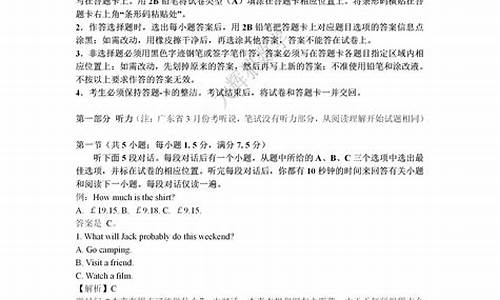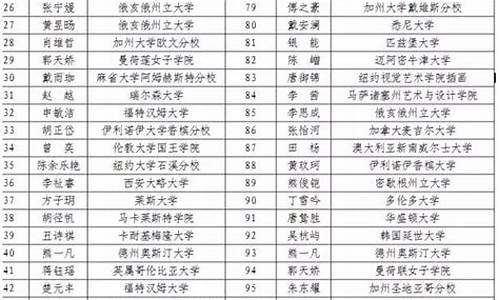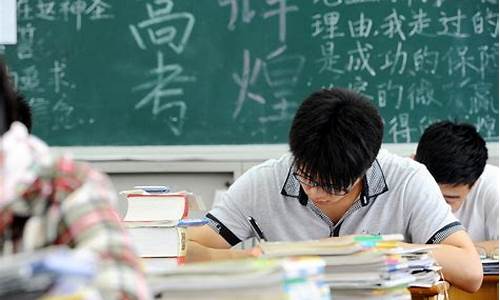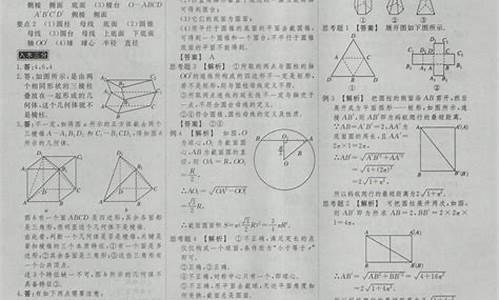您现在的位置是: 首页 > 教育政策 教育政策
高考英语3卷答案2017_17年高考英语卷三
tamoadmin 2024-05-20 人已围观
简介2017年七年级下册英语期末的考试就要到来,十年磨砺一杆笔,十年冬夏练功力。祝你 七年级英语 期末考试顺利,金榜题名,一飞冲天。我整理了关于2017年七年级下册英语的期末考试卷及答案,希望对大家有帮助! 七年级下册英语期末考试卷2017 第I卷 选择题 (共70分) 一、听力理解 (共四节,满分25分) I.听对话,选 请听下面五段对话,选择与你听到的内容相符的。听完每段

2017年七年级下册英语期末的考试就要到来,十年磨砺一杆笔,十年冬夏练功力。祝你 七年级英语 期末考试顺利,金榜题名,一飞冲天。我整理了关于2017年七年级下册英语的期末考试卷及答案,希望对大家有帮助!
七年级下册英语期末考试卷2017第I卷 选择题 (共70分)
一、听力理解 (共四节,满分25分)
I.听对话,选 请听下面五段对话,选择与你听到的内容相符的。听完每段对话后,你都将有10秒钟的时间回答相关小题和阅读下一小题。每段对话读一遍。(5分)
( )1. A. B. C.
( )2. A. B. C.
( )3. A. B. C.
( )4. A. B. C.
( )5. A . B. C.
II.听 句子 选 答语 (5分)
听下面5个句子 ,选择恰当的答语。听完每句后,你都将有10秒钟的时间回答问题和阅读下一小题。每个句子读两遍
( )6. A. No, I wasn?t. B. Yes, I am. C. No, I?m not.
( )7. A. I play basketball. B. I played soccer. C. It was good.
( )8. A. Yes, she does. B. No, she didn?t. C. Yes, she didn?t.
( )9. A. They?re in the classroom. B. They?re taking photos. C. It?s raining.
( )10. A. Yes, it is. B. No, I don?t. C. It?s cold.
III.听对话,回答问题 (共5个小题:每小题1.5分,满分7.5分)
请听下面五段对话,每段对话后有一个小题,从题中所给的A、B、C三个选项中选出最佳选项。听完每段对话后,你都将有10秒钟的时间回答有关小题和阅读下一小题。每段对话读两遍。
( )11. How was Ann?s weekend?
A. It was a busy day. B. It was good. C. It was not good.
( )12. What did Li Lei and Alice do last weekend?
A. They did their homework. B. They watched TV. C. They played soccer.
( )13. Where was Li Mei over the weekend?
A. She was at home. B. She was at school. C. She studied math.
( )14. What?s Jack doing?
A. He is playing with snow. B. He is walking in the wind.
C. He is running in the rain.
( )15. What is the weather like in Jinlin now?
A. It?s snowy. B. It?s sunny. C. It?s rainy.
IV.听短文,选择正确答案 (每小题1.5分,满分7.5分)
请听下面一段短文,根据短文内容选择正确答案。听前你将有50秒钟的时间阅读题目。短文读两遍。
( )16. The girl is _____years old.
A. 14 B. 15 C. 13
( )17. The girl is ____________________________.
A. tall B. thin C. fat
( )18. Today she is wearing a _____sweater and _____trousers.
A. blue; yellow B. yellow; red C. yellow; brown
( )19. Is her hair short and blonde?
A. Yes, it is. B. No, it isn?t. C. I don?t know.
( )20. What is she good at?
A. Singing. B. Reading. C. Playing chess.
二.单项选择: (15分)
(一)语音知识考查:找出下列各组单词中划线部分的读音不同于其他三个的单词。
( )21. A. plane B. race C. snake D. bad
( )22.A. ride B. fish C .miss D. pick
( )23. A. tooth B. three C. month D. weather
( )24. A. hear B. near C. wear D. year
( )25. A .beach B. heavy C. bread D. health
(二)语言知识运用:从A,B,C三个选项中,选出可以填入句中相应空白处的最佳选项。
( )26. My friend Bob likes to play _______ basketball before _________supper.
A. the; the B. /; the C. / ; /
( )27. My sister is _____ medium height ,and she has _____ long hair .
A. of ,a B. about ,/ C. of ,/
( )28.The show wasn't ______. I wasn't ______ in it at all.
A.interesting;interesting B.interesting;interested C.interested;interested
( )29.? _____________________?
? I watch ed TV at home.
A.How was your weekend B. What did you do C.When did you watch TV
( )30. I was so tired ______ I went to sleep early .
A. and B. but C. that
( )31. I__ _______ my room every day. But now I __________. .
A clean, am reading B am cleaning, reading C cleaning, read
( )32. Jenny ________ late to study for the test last night .
A. put up B. stayed up C. woke up
( )33.Please never________ the noodles because the long noodles are a symbol of long life.
A. cut down B. cut up C. blow out
( )34.?Mary is not here. Can I ______ a massage for her?
?Yes. Could you please tell her to milk a cow.
A. take B. leave C. give
( )35.?Can I help you, boy Yes. There is _________wrong with my bike.
A. something B. anything C. nothing
三.阅读理解:(30分,每小题2分)
A
Mr. Green works in a high school. He likes reading and often borrows some books from the library. He keeps reading newspapers after supper. So he knows much and teaches well. His students loves him very much. Mike, his little son, is only nine. He also likes reading books. And he often asks his father some questions. Mr. Green always answers difficult ones.
One day Mike read something about phones and he was interested in it. He asked his father a few questions, and his father answered all. His father said, ? Fathers always know much, but sons always know little!? The boy thought for a minute and said,? I don?t agree with(同意) you.?
?Oh? Why
Mike didn?t answer but asked, ?Who invented the phone
?Bell.? answered Mr. Green.
?Why didn?t his father invent them
Looking at his son, Mr. Green didn?t know how to answer it.
( )36. What does Mr. Green do?
A.A reporter B.A teacher C.A librarian D.A waiter
( )37. What does Mr. Green often do after supper?
A. He often takes a walk. B. He often watches TV.
C. He often reads newspapers. D. He often helps Mike with his homework.
( )38. Why do the students love Mr. Green?
A. Because he knows a lot and teaches well. B. Because he is friendly to them.
B. Because he didn?t ask them to do homework. D. Because he works hard.
( )39. Who invented the phones?
A. Bell B. Mr. Green C. Mike. D. Bell?s father.
( )40. From the story ,we know that Mike is a ______boy.
A. lazy B. seven-year-old C. clever D. stupid( 愚蠢的).
B
Go to Thailand(泰国)?it?s a great place to spend your holidays. I spent my last summer vacation in Thailand. It?s really a beautiful place to travel(旅游) to.
Thai people are very helpful. They helped me a lot during traveling. I enjoyed outdoor activities(活动) like swimming, biking and diving( 潜水 ). All of these were wonderful(精彩的,好极了的). I visited many temples(寺庙)and learned about their history. Their history is very old and interesting. It?s very different from ours.
I shopped at the special market(市场). It?s on a river and everyone sells their goods(货物)from their boats. Thai food is delicious, too! I also learned a little Thai boxing( 拳击 ) from their schools. You?ll love Thailand, too.
( )41.When did the writer go to Thailand?
A. last month B. last week C. last summer
( )42. How are Thai people?
A. They?re friendly. B. They?re excited. C. They?re strange.
( )43. Their history is _____.
A. short and interesting B. long and interesting C. old and boring
( )44.Where did the writer shop?
A. In a supermarket B. In a bookstore C. In a boat market
( )45.Which of the following is NOT TRUE(不正确)?
A. The write didn?t learn their history.
B. The write did a lot of outdoor activities such as swimming and diving.
C. The write also learned some Thai boxing.
C
On New Year?s Day, many people eat special food for good luck.
In Spain(西班牙) and some Latin American countries(拉丁美洲国家),people eat twelve grapes (葡萄)at midnight(半夜) on New Year?s Eve?One grape for good luck in each month of the new year.
Chinese people eat dumplings. Some are made with a coin inside. Everyone tries to find the coin for good luck and money in the new year. Of course(当然) they don?t eat the coin(硬币). In the south of China, people make rice cakes for New Year. The Chinese pronunciation(发音) for rice cake is ?Nian Gao?, which means ?get better year after year?.
Japanese people eat noodles on New Year?s Eve and on their birthdays. They think it may bring them good luck and long life.
The food may be different in each country, but the meaning is the same---people hope the food will bring them luck and happiness(快乐,幸福) in the coming year.
( )46. In Spain, what do people eat in the new year?
A. rice cake B. noodles C. grapes D. d umplings
( )47. Is the food in South China the same as the food in North China for the whole year(整年)?
A. Yes B. No C. Not sure D. Not mentioned(提到) in the article
( )48. What do people do with the coins in the dumplings?
A. They eat it B. They give it to children C. They don?t eat it D. They spend(花) it
( )49. What?s the meaning for Japanese noodles on New Year?s Eve?
A. good luck B long life C. money D. both A and B
( )50. What do the writer want to express(表达) in the article( 文章 )?
A. People like to eat B. Different countries have different food
C. People around the world use food to express their good wishes for the coming year
D. The writer likes to travel
七年级下册英语期末考试卷2017参考答案一. 听力:1?10每小题1分,11?20每小题1.5分
答案:1--5 AABBB 6--10ABBBB 11---15CBABA 16---20 ABBBC(25分)
二 单项选择:(15分, 每小题1分,)
21?35: DADCA CCBBC ABBAA
三 阅读理解:(每小题2分, 30分)
36---40: BCAAC 41?45:CABCA 46?50:CBBDC
四.任务型阅读:(10分,每小题2分)
1. It was terrible.
2. went / got, by
3. How was the weather? / What was the weather like?
4.was; to take
5. 人也太多了, 我真的根本看不见导游,也听不见导游的话。
五.综合填空:(10分,每小题1分)
1. between 2. reading 3. quickly 4. turn 5. across from
6. what 7. difficult 8. so 9. differently 10. is
六.词汇运用:(10分,)每小题1分
1. children 2. exciting 3. to drink 4. lovely 5. easily
6. come true 7. looked out of 8. show us around 9. stay up late 10. am interested in
七. 写作(20分)
第一部分:连词成句。(每小题2分,共10分)
1. Is there a post office near here?
2. What time do you usually get up?
3. I worked at the museum as a guide.
4. What does his uncle look like?
5. What did you have for lunch at school?
第二部分: 答案略
评分要求:
1. 要点表达齐 全,语法错误少, 书写干净规范,9?10分。
2. 要点表达基本齐全, 句式、语法错误较少 ,书写基本规范, 7?8分。
3. 要点表达不齐全,句式、语法错误多,书写不干净不很规范, 5?6分。
4. 要点表达遗漏多,内容不完整,句式、语法错误多,书写潦草,3?4分。
5. 只写少数几个句子,形不 成语 篇,内容很不完整,句式、语法错误多,书写潦草 1?2分。
>>>下一页更多精彩?2017七年级下册英语期末测试卷及答案?
2016-2017英语周报高三课标第五期答案
Book 2 Units 4-5
参考答案及部分解析
参考答案
1-5 BBCAC 6-10BCABB
11-15 ACBCB 16-20ACBBA
21-25 CBBDC 26-30CDACD
31-35 CCBAC 36-40BAECG
41-45 CADAB 46-50CBBAD
51-55 DCBBA 56-60ADBCC
61. It 62.the
63. untidy 64.keeps
65. fairly 66.up
67. to stop 68. that
69. of 70.where
短文改错:
71. Behind me being ... being → was
72. ... and obvious hadn't ...
obvious → obviously
73. The other stood ... other → others
74. ... notice him after ... after → until
75. ... rolled his eyes. his → her
76. ... when I turned back ... when → that
77. ... had been happened. 去掉been
78. Looking for him ... for → at
79. ... “Have nice day.” nice前加a
80. ... look happy. look → looking
One possible version:
Notice
In order to help foreign students learnmore about Chinese culture, two optional courses are to be offered in ourschool. The courses will be open to any student who is interested in them.
If you want to experience the beauty ofChinese language, the appreciation of poetry is the right course. It focuses onintroducing the characteristics of the poetry of Tang and Song dynasties andappreciating their beauty. The paper-cutting course is designed for those wholove using their hands. By taking the course, you will not only learn how tomake different types of paper-cutting but get familiar with its connection toChinese culture.
For more information, please contact theDean's office.
部分解析
阅读理解:
A篇(日常活动)
本文是记叙文。雪地中的散步令作者感到心情舒畅。
21. C。词义猜测题。由上文的I've planned to attend an emergent webinar及下文的I don't have time for this可知,作者“不情愿地(reluctantly)”穿上靴子准备遛狗。故C项正确。
22. B。推理判断题。由第三段中的I walk slowly with heavy steps, worrying about my to-do list, and Idon't notice the world around me可推断,刚开始散步时,作者感到紧张不安。
23. B。细节理解题。由第五段开头的Once again, my animal teacher is reminding me to enjoy the presentmoment可知,Rio“教育”作者要活在当下。
24. D。标题归纳题。由最后一段When we walk home, I smile broadly, spirit washed clean, ready forwhatever the day may bring可知,忙碌又焦虑的作者通过在雪地中散步心情舒畅了。故D项恰当。
B篇(体育)
本文是议论文。赤脚跑步有益健康。
25. C。细节理解题。由第一段末的People notice him because when he runs, “Barefoot Mike” runs barefoot可知,Mike跑步时备受关注是因为他没穿鞋。
26. C。细节理解题。由第二段中的accidentally stepped into a huge muddy puddle ... the wet and dirty shoe made it really hard可知,Mike当时赤脚跑步是因为他的一只鞋踩到水坑里后变得又湿又脏,极不舒服。
27. D。细节理解题。由第三段中的“It felt so good!” Mike said ...It was awesome!”可知,Mike赤脚跑了一会儿后感觉出乎意料地好。
28. A。推理判断题。由倒数第二段末的Many runners have impact injuries such as knee pain. Heel-strikingmay be the cause of these injuries or may make an existing injury worse可推断,足跟着地对身体有害。
C篇(语言学习)
本文是说明文。文章介绍了girl Friday一词的含义和来源。
29. C。细节理解题。由第二段中的a woman who fits this role is well organized and handles a lot ofbusiness and administrative matters可知,该段提到的girl Friday应该具备较强的组织能力。
30. D。推理判断题。由第四段中的it refers to someone who is more of a personal cheerleader anddevoted friend, in other words, the female version of a “wingman.”可知,该词的意思应是陪伴和支持某人的男性朋友。
31. C。段落大意题。由最后一段中的the author of Robinson Crusoe, indirectly gave birth to the term “girl Friday”及下文可知,本段主要讲girlFriday一词的来源。
32. C。篇章结构题。文章第一段概括讲了girl Friday一词的含义,第二、三、四段分别详细说明了该词的三种含义,最后一段是该词的来源。故C项正确。
D篇(旅游)
本文是应用文。文章是一些自然历史博物馆的介绍。
33. B。推理判断题。由Florence部分的Tickets:Adults, $8; kids ages 6 to 14, $4可知,一个成年人和两个8岁的孩子共需支付16美元。
34. A。细节理解题。由London部分的Visit the Red Zone tolearn about our planet可知,在红色区域可以了解到与地球相关的知识。
35. C。细节理解题。由文章最后一段的It opens every weekday from 9 a.m. to 5 p.m., except Thurs., whenthe museum is open until 8 p.m.可知,只有周四晚上可以参观加拿大自然博物馆。
七选五:
话题:个人情况
本文是记叙文。文章介绍了美国前第一夫人南希·里根的生平。
36. B。B项与上文的Nancy was bornin Manhattan相呼应。
37. A。A项与上文的Nancy marriedRonald Reagan相呼应,都是讲里根夫妇的婚姻和家庭。
38. E。E项与下文的she had hired anastrologer to assist in planning the president's schedule相呼应。
39. C。下文的The book's name is ... sold many copies是对C项中的a book的介绍。
40. G。G项是对上文She also askedPresident George W. Bush to support stem cell research的解释说明。
完形填空:
话题:人际关系
本文是夹叙夹议文。文章通过做客的经历引出关于宽以待人的思考。
41. C。由下文的They were high-quality pieces of furniture可推断,作者和丈夫一起“赞赏(admiring)”高档的桌椅。
42. A。由下文的They invited us to sit and enjoy a meal可知,介绍这些家具的是这个家的“主人(hosts)”。
43. D。由上文的They're antiques可知,这些古董桌椅是夫妇俩珍爱的“宝物(treasures)”。
44. A。由下文的we settled in及He leaned backin his chair可推测,饭菜被“摆上桌(served)”后,大家就座了。
45. B。由上文的grew comfortable及下文的withoutthinking, got into a bad habit. He leaned back in his chair, far enough to liftthe front legs可推断,作者的丈夫坐得有点太“舒服(comfortable)”了,以至于仰靠在椅背上时将椅子坐倒了。
46. C。作者的丈夫向后仰靠在椅背上以至于使椅子的前腿离开了“地面(floor)”。
47. B。由下文的He's a lot to put in a chair可知,作者的丈夫非常“胖(large)”。
48. B。由下文的an even worse sight — that beautiful antique chair was ... useless可推断,作者的丈夫从椅子上摔倒的瞬间发出了“可怕的(terrible)”声响。
49. A。由下文的useless可知,漂亮的古董椅子“坏了(broken)”。
50. D。由上文可知作者的丈夫把漂亮的祖传椅子坐坏了,故二人向主人真诚地“道歉(apologized)”。
51. D。珍爱的椅子坏了,主人显然很“伤心(sad)”。
52. C。主人又拿了一把祖传的椅子“邀请(invited)”作者的丈夫坐下。
53. B。由I'm glad可知,除了之前被弄坏的那把椅子,没有椅子再被“损坏(harmed)”。
54. B。由上文的they insisted they would have no problem repairing the damage ... myhusband to sit in it可知,和贵重的椅子相比,主人更看重“友好的行为(kindness)”。
55. A。主人面对祖传椅子被损坏的事实仍对作者夫妇友好相待,说明他们认为人比“财产(possessions)”重要。
56. A。他人并不总“像(as)”我们那样珍惜我们所珍惜的东西。
57. D。由上文作者的丈夫弄坏主人家的贵重椅子的例子可知,人们并不总是“小心翼翼地(carefully)”行动。
58. B。59. C。如果我们珍惜人,那就最好看淡自己的财物,“尽管(even if)”这样会使我们失去喜爱的东西。holdloosely to看淡。
60. C。祖传的椅子无法替代,人也同样无法“替代(replaced)”。
语法填空:
61. It。考查it的用法。设空处作形式主语,故填It。
62. the。考查定冠词。all the time意为“一直,始终”。
63. untidy。考查形容词作表语的用法。由语境可知,此处意为“他的头发不整齐”,故填untidy。
64. keeps。考查一般现在时。keep在此表示的是经常或习惯性发生的动作,且主语是第三人称单数,故填keeps。
65. fairly。考查副词。设空处修饰副词often,故填fairly(相当)。
66. up。考查副词。set up意为“建立”。
67. to stop。考查不定式作状语的用法。I与stop是逻辑上的主谓关系,且设空处表目的,故填to stop。
68. that。考查连接词。设空处引导宾语从句,且从句的意义和成分均完整,故填that。
69. of。考查介词。kind of意为“有点儿”。
70. where。考查关系词。设空处引导非限制性定语从句修饰Monte Carlo,且在从句中作地点状语,故填where。









